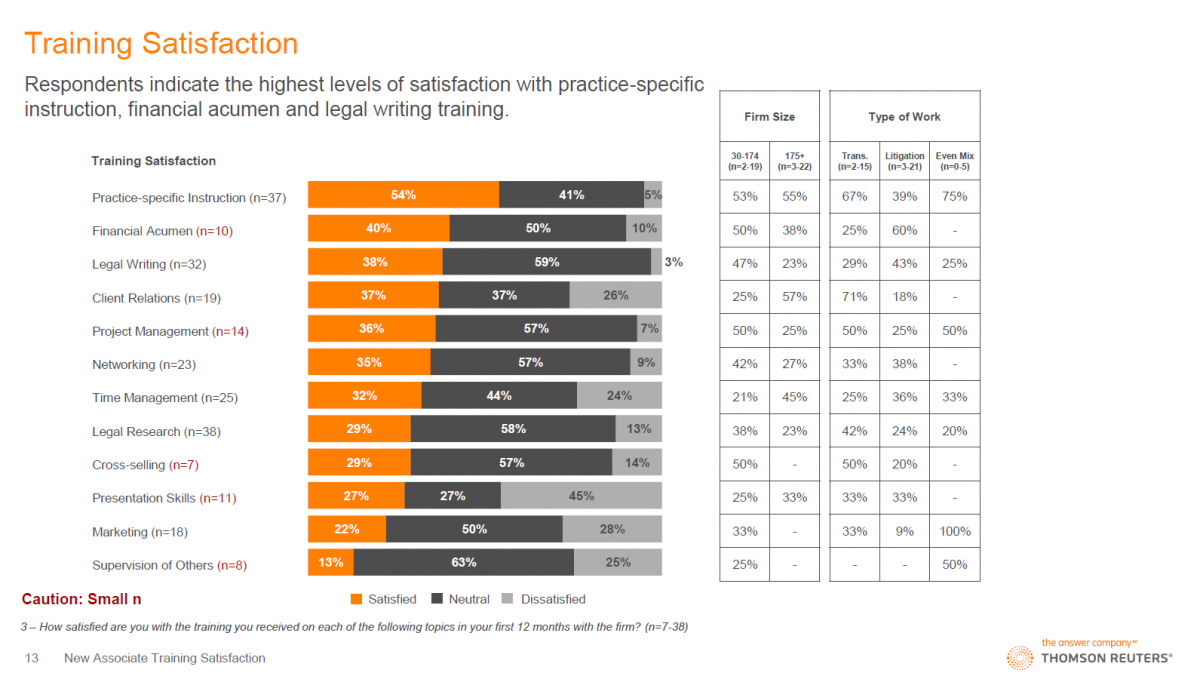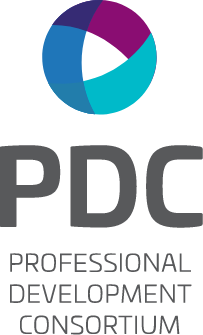You are here
New Associate Training Satisfaction Survey
September 12, 2016
Recently, Thomson Reuters’ West LegalEdcenter released its New Associate Training Satisfaction Survey, which sought to measure current behavior and attitudes of new associates relating to their first-year training in their respective law firms and identify opportunities to improve new associate training.
The survey was completed in June, as a 15-minute survey that was deployed online. Using a demographic sample provided by Thomson Reuters, respondents were invited to participate via email, and those who completed the survey were entered into a sweepstakes drawing to win a prize.
Key Findings
The key findings of the survey revealed:
Most find high value in training, but report moderate-to-low satisfaction with the training that is currently provided — With few exceptions, respondents say that training adds high value to their work. However, they report moderate-to-low levels of overall training satisfaction and generally low satisfaction with the amount of training they received. Most topics are currently covered in three hours or less over the first 12 months of practice, according to survey respondents. Further, approximately 80% say that they would like some forms of additional training, yet 70% said they do not have any scheduled.

Soft skills training is the biggest unmet need — The most desired but currently unavailable training topic is “personal and professional development,” wanted by nearly one-quarter (23%) of respondents. Consistent with findings from past law school student and associate research studies, young professionals seek support with more than just job skills.
There are some differences in needs and practices between firm sizes and practice types — The most noteworthy distinctions by practice type and firm size include:
- Transactional associates trend slightly higher in training satisfaction and indicate lower demand for additional training.
- Large firms show stronger demand for project management, legal writing, supervision and financial acumen training, while midsize firms skew higher in interest toward practice-specific instruction, marketing and time management training.
Recommendations
The survey also made some suggested recommendations for improving new associate training, based on the responses to the survey. These included:
Develop trainings on topics of strongest demand and/or those of highest value but lowest current satisfaction — Topics that respondents show the highest interest in attaining more training include client relations, practice-specific instruction, marketing, project management and legal writing. Topics that are deemed highly valuable but that have low hours and low satisfaction ratings include presentation skills, supervision of others and time management.
Hone in on soft skills — Consider providing unconventional training topics relating to personal and professional development, and/or underscore aspects of the more traditional topics that support this type of growth.
Make sure associates are fully aware of all their training options — Most training is initiated by associates and most have a fair amount of autonomy in selecting training.
Take advantage of the virtues of virtual trainings — To keep costs in control, be sure to offer an online training option that gives individual users the freedom to complete additional training as needed.
If you would like to view the full survey results, click here and fill out the form at the bottom of the page.


